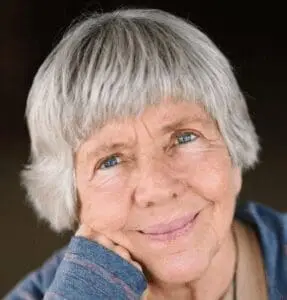EDITOR’S NOTE: This interview streamed live on July 26, 2022. Some offers and links may no longer be available.
Without ever seeking fame—or even wanting it—prolific author Mary Pipher has become a kind of intellectual celebrity, a go-to source of clarity on the impact of power and culture on our health. And in her new memoir, A Life in Light: Meditations on Impermanence, she refuses to dumb down what it takes to create a rewarding life.
Join her for a candid discussion of the interplay of darkness and light in every life, as well as how we can move toward the light without banishing the shadows. Equal parts illuminating and hopeful, don’t miss this exclusive conversation!
Watch the video on YouTube.
Marian Sandmaier
Marian Sandmaier is the author of two nonfiction books, Original Kin: The Search for Connection Among Adult Sisters and Brothers (Dutton-Penguin) and The Invisible Alcoholics: Women and Alcohol Abuse in America (McGraw-Hill). She is Features Editor at Psychotherapy Networker and has written for the New York Times Book Review, the Washington Post, and other publications. Sandmaier has discussed her work on the Oprah Winfrey Show, the Today Show, and NPR’s “All Things Considered” and “Fresh Air.” On several occasions, she has received recognition from the American Society of Journalists and Authors for magazine articles on psychology and behavior. Most recently, she won the ASJA first-person essay award for her article “Hanging Out with Dick Van Dyke” on her inconvenient attack of shyness while interviewing. You can learn more about her work at www.mariansandmaier.net.
Mary Pipher
Mary Pipher, PhD, is a clinical psychologist, author, and climate activist. She’s a contributing writer for The New York Times and the author of 12 books, including Reviving Ophelia, Women Rowing North, and her latest, A Life in Light. Four of her books have been New York Times bestsellers. She’s received two American Psychological Association Presidential Citation awards, one of which she returned to protest psychologists’ involvement in enhanced interrogations at Guantanamo.













